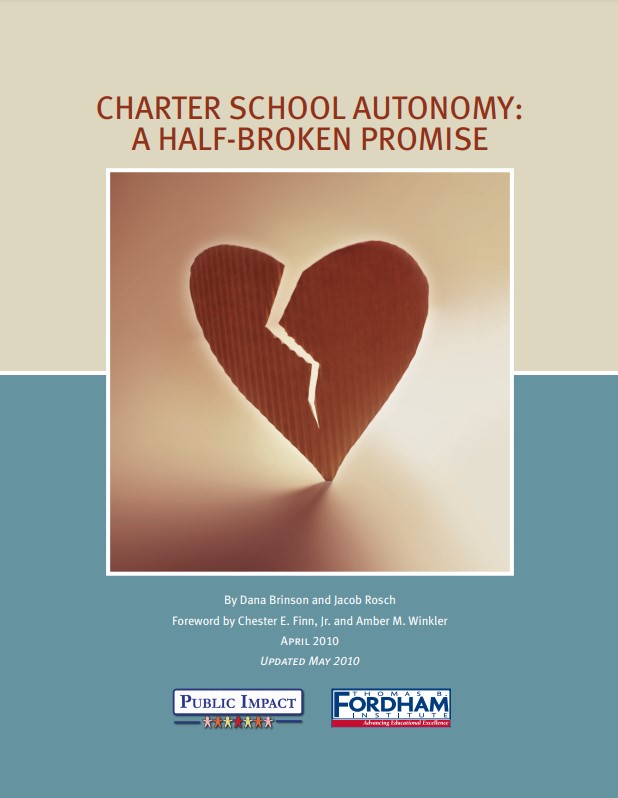Charter schools across the country, on average, are not enjoying the full autonomy from regulations that apply to typical district schools, autonomy that policymakers and education reformers promised as part of the charter school “bargain” of greater autonomy for strong accountability. This report, conducted for the Thomas B. Fordham Institute by Dana Brinson and Jacob Rosch, examined 100 charter contracts and 26 state charter laws to measure how much freedom charter schools have in fourteen critical areas of operations such as establishing curricula or teacher work rules.
The authors found that while, nationally, charter schools experience an average level of autonomy in the B- grade range, some states and charter school authorizers confer broad autonomy on charter schools—earning an A—while other state charter laws and authorizer contracts earned an F for the heavy restrictions they placed on schools. As education leaders across the country push for greater charter school accountability—urging rightly to close low-performing schools—this report asks, “Are charter schools enjoying the autonomy side of the bargain?” and finds the answer is ‘no’ in too many schools across the country.

